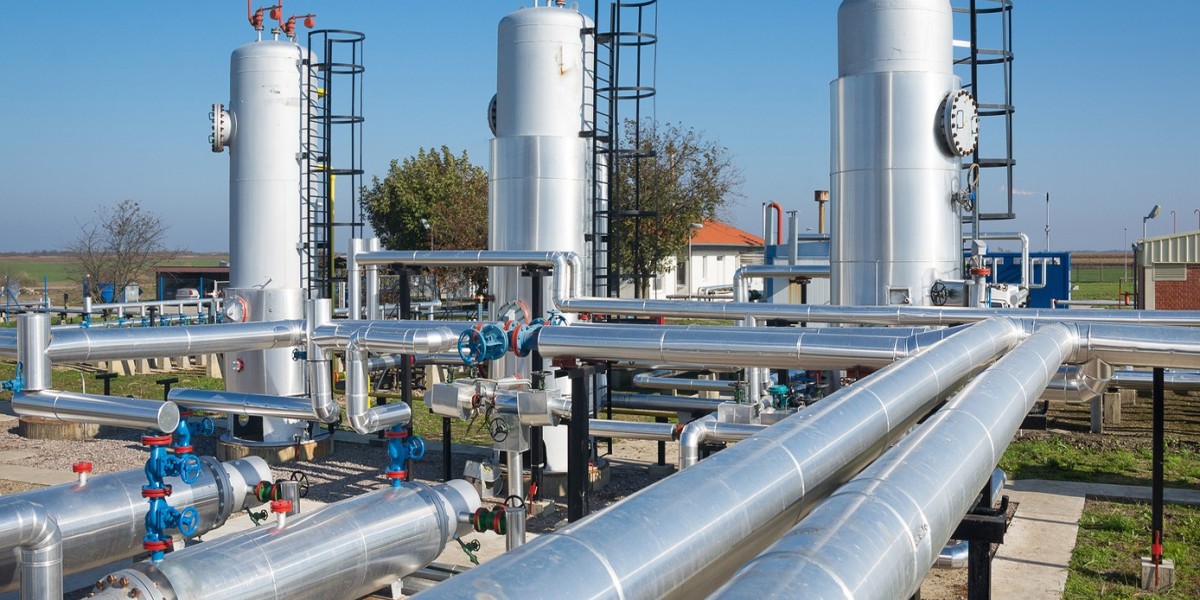As the world transitions towards cleaner energy sources to combat climate change and reduce dependence on fossil fuels, hydrogen emerges as a promising alternative with the potential to revolutionize various sectors, from transportation to industrial processes. At the heart of the hydrogen economy lies the critical challenge of efficient and safe hydrogen storage. In this blog, we explore the latest advancements, persistent obstacles, and strategic approaches in the realm of hydrogen storage, driving us towards a more sustainable future.
Progress in Hydrogen Storage Technologies
Over the years, significant strides have been made in developing Hydrogen Storage technologies that enable the efficient harnessing and utilization of this abundant element. From compressed gas storage to liquid hydrogen and solid-state solutions, researchers and engineers have explored a diverse array of approaches to overcome the inherent challenges associated with hydrogen's low energy density and volatility.
Compressed gas storage systems, utilizing high-pressure tanks, have long been the most widely deployed method for storing hydrogen. While effective, these systems require substantial infrastructure and entail safety risks associated with handling high-pressure gases. Liquid hydrogen, stored at cryogenic temperatures, offers higher energy density but presents logistical challenges and energy-intensive refrigeration requirements.
More recently, solid-state hydrogen storage materials, such as metal hydrides, carbon-based materials, and chemical hydrides, have garnered attention for their potential to overcome the limitations of traditional storage methods. These materials can reversibly absorb and release hydrogen, offering improved safety, energy density, and ease of handling. Ongoing research aims to enhance the performance and scalability of solid-state storage solutions for widespread adoption.
Obstacles and Challenges
Despite the progress achieved in hydrogen storage technologies, several persistent obstacles continue to hinder the widespread adoption of hydrogen as a clean energy carrier. Chief among these challenges are cost, efficiency, and scalability. Developing storage systems that strike the right balance between performance, affordability, and practicality remains a formidable task.
Moreover, the integration of hydrogen storage infrastructure into existing energy systems poses technical, regulatory, and investment barriers. From retrofitting vehicles with hydrogen fuel tanks to establishing refueling stations and distribution networks, the transition to hydrogen-based transportation requires coordinated efforts across multiple stakeholders. Additionally, concerns surrounding hydrogen production methods, such as electrolysis or steam reforming, and the environmental impact thereof, necessitate careful consideration in the broader context of sustainability.
Strategic Approaches for Advancement
Addressing the challenges associated with hydrogen storage requires a multifaceted approach that encompasses technological innovation, policy support, and market incentives. Collaboration between industry, academia, and government institutions is essential to drive research and development efforts aimed at improving the performance and affordability of hydrogen storage systems.
Investment in infrastructure development, including hydrogen production facilities, storage facilities, and distribution networks, is crucial to create an enabling environment for the widespread adoption of hydrogen technologies. Policy measures, such as carbon pricing, renewable energy incentives, and emissions regulations, can incentivize investment in clean hydrogen solutions and facilitate market growth.
Furthermore, international cooperation and knowledge sharing can accelerate progress towards overcoming common challenges and fostering innovation in hydrogen storage technologies. Initiatives such as the Hydrogen Council and international research collaborations play a vital role in promoting dialogue, collaboration, and resource sharing among stakeholders worldwide.
Hydrogen storage represents a cornerstone of the emerging hydrogen economy, offering a pathway to decarbonize various sectors and achieve ambitious climate goals. While significant progress has been made in developing storage solutions, challenges persist on the path to widespread adoption. By leveraging technological innovation, policy support, and strategic collaboration, we can overcome these obstacles and unlock the full potential of hydrogen as a clean and sustainable energy carrier. Together, we can build a future powered by hydrogen, driving towards a more resilient and environmentally responsible world.
Get more insights on Hydrogen Storage



